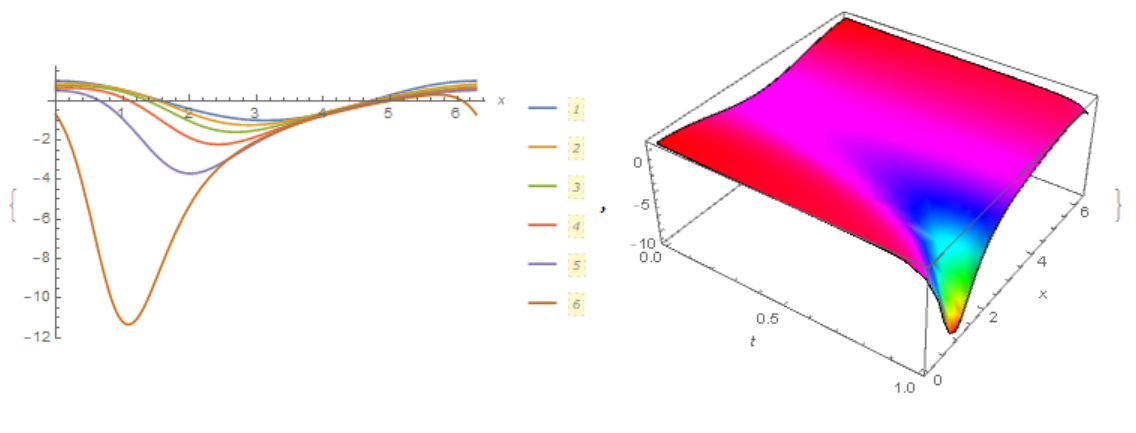I use the code from my answer on Solving partial differential equation involving Hilbert transform
We put $\mu =0,\sigma^2 =1/2$,L=Infinity,n[0,x]==Cos[x]
n = Sum[f[m][t] Exp[I m x], {m, -Infinity, Infinity}]
Then the integral is calculated as
Integrate[
Exp[-s^2] Exp[I m s]/Sqrt[Pi], {s, -Infinity, Infinity}]
(*Out[]= E^(-(m^2/4))*)
Now we can make a system of equations
nn = 137; tm = 1.; eq =
Table[-f[m]'[t] - m^2 f[m][t] -
I m Sum[If[Abs[m - k] <= nn, f[m - k][t], 0] Exp[-k^2/4] f[k][
t], {k, -nn, nn}] + f[m][t] -
Sum[If[Abs[m - k] <= nn, f[m - k][t], 0] f[k][t], {k, -nn, nn}] ==
0, {m, -nn, nn}];
ic = Table[
f[m][0] == (KroneckerDelta[m, 1] + KroneckerDelta[m, -1])/
2, {m, -nn, nn}];
var = Table[f[i], {i, -nn, nn}];
sol = NDSolveValue[{eq, ic}, var, {t, 0, tm}];
Data visualization
{Plot[Evaluate[
Table[Re[
Sum[sol[[m + 1]][t] Exp[I (-nn + m) x], {m, 0, 2*nn}]], {t, 0,
tm, .2}]], {x, 0, 2*Pi}, Mesh -> None, ColorFunction -> Blue,
AxesLabel -> Automatic, PlotLegends -> Automatic, PlotRange -> All],
Plot3D[Re[
Sum[sol[[m + 1]][t] Exp[I (-nn + m) x], {m, 0, 2*nn}]], {t, 0.,
tm}, {x, 0, 2*Pi}, Mesh -> None, ColorFunction -> Hue,
AxesLabel -> Automatic, PlotRange -> All]}




NDSolvecan't directly handle integro-differential equation. $\endgroup$